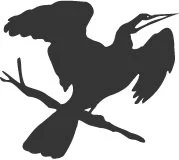
nearly Florida by James Brock
Van K. Brock Florida Poetry Series (2000)
In this powerful collection, James Brock allows us to listen in on a fascinating argument between geography and the imagination. To describe a hugely various country, pulsing with radio talk, and covered with interstate highways, shopping malls, museums, beaches and potato fields, is an ambitious project, but to show us how we become exiles and dreamers in our own land is to illuminate the inner landscape as well. -- Maura Stanton
A quiet lyric grace informs the poems of James Brock, a grace which never fails to console and locate their speaker, even in the midst of his restless odyssey among many American landscapes. The poems speak with a subtle necessity and authority, both as they confront the vagaries of daily living and as they perform their more demanding investigation into the meaning of loss. These are poems that understand, as one of his lines puts it, "the inchoate currents of desire." -- David Wojahn
James Brock's second book of poems, nearly Florida continues the career of one of this country's finest young poets. His first book, The Sunshine Mine Disaster, was a remarkable book-length poem in the documentary tradition. The new poems strike off in a different direction: lyrics as personal, urgent and direct about love as they are about its twin, loss. -- Roger Mitchell
Craters of the Moon. 82 mph
- for Kevin and Bruce
One theory holds that life is a mirage of ruin,
where the ship we wave to, to save our drowning,
is a reflection of light and heat and vapor,
where the branch we cling to, to keep our sinking
necks above the quicksand, is only an unrooted stick,
ungrounded to anything solid. For instance, take us,
the three men here, at the Craters of the Moon
National Monument, beyond the nuclear waste sites,
beyond the potato fields leafing green on the lava
basin, beyond the archeological digs of paleolithic
horses, elephants, and cats. The snow flurries
about us this April. The snow falls on our shoulders,
into our faces, and we laugh because we do not
know how we arrived, except at a speed of 82 mph,
too slow to escape any ruinous memory, too slow
to outrun the teenaged girls of our youth who caught
hell from their fathers for us, caught in the tangle
of legs and language that spoke of escape routes
out of deserts worse than any Idaho. Where are we,
these three men, driving to? Who is to say how far
into a world we would go where there is such dying,
such laughing, into a world of so much cinder and
smoke? Who is to say we will not return because
we cannot drive any better but to wreck headlong
into a brick wall that will evaporate at the very last
second? It is not the mirage that worries us. What
are we? Okay, I will tell you. We are three men caught
in wind and time, caught in the piss and creak
of middle age, caught in everything just before
our eyes. We have the nerve to reach toward any branch
and death-grip the limb, knowing nothing is there.
Or rather, we place a hand on the warm, broad
back of our fellow, and what disappears is all
the driving that got us here in the first place.
Traces
My child, in his room, is playing,
and I cannot tell whether he
is laughing or crying, but I will
not stir from my reading, for his joy,
as I imagine, over the leaves
of sycamore we found is his own,
and if his noise is the child's
grief, that, too, is his own. To be
truthful, I am afraid that I can
no longer restore comfort out of pain.
Still, I know I will seek in the broad
ways whom my soul loves, and I
retrieve one trick I learned young,
so that I do rise and go. I mix
sugar milk and take paper and matches
into his room. Here, I tell him,
I have something to show you. With
the liquid, he traces circles
with his finger upon the paper, and I
lay my hand over his hand, to feel
the movement of what he has in mind.
The circles, I think, become smoother,
rounder, smaller. I say, Okay,
let's let the paper dry, and
I return to my reading, and he
to his quieter play. And it is fear
again: how a father dreams of
the drowning child he can never save,
the child's face disappearing
in a swallow of silt, how a father
plays with combustible materials
and their traces - fire and ash - that
will leave nothing but the child's
tiny bones. It is fear because I know
my son will come to me, asking
if it is ready, and I will have
to say yes. I will light the match
beneath the paper, and from nothing
will appear maybe something like a face,
something like my own face,
fevered, blistered, blackening faster
than the paper, or the design becomes
my child's face in a cry or a laugh,
calling out someone else's name.

